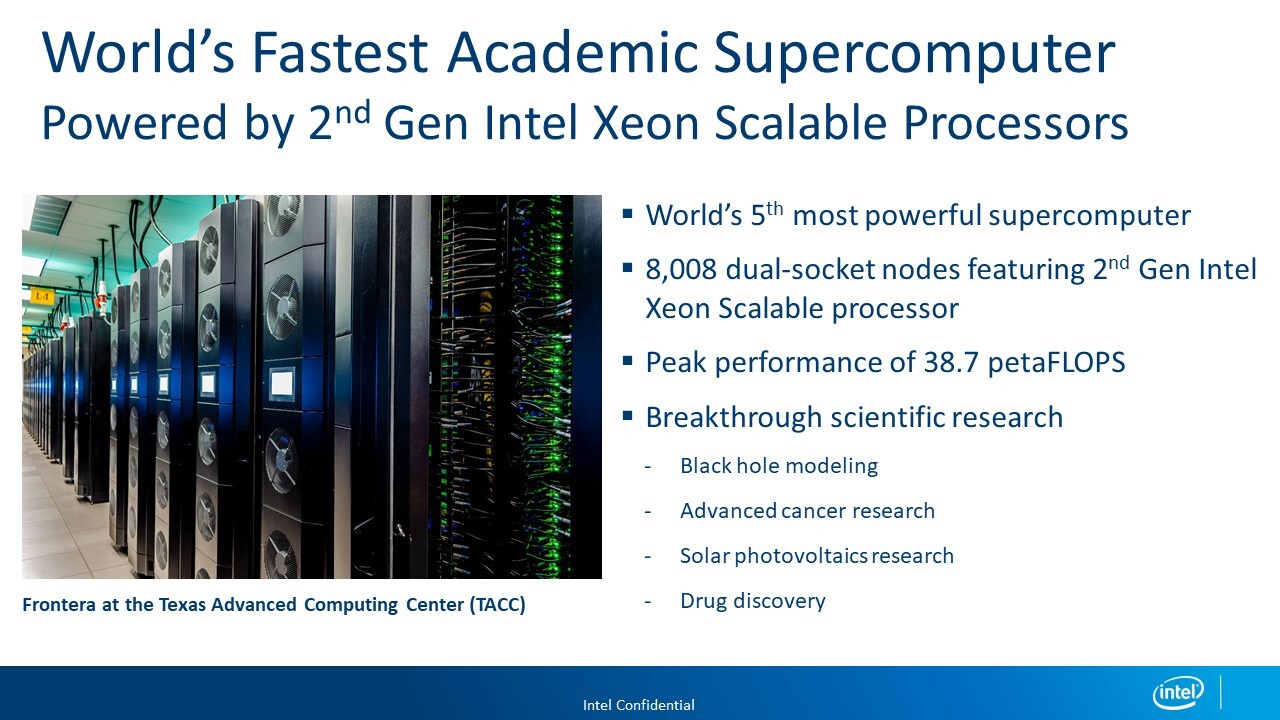In this Intel Chip Chat podcast, Dan Stanzione from TACC discusses the architecture and capabilities of Frontera, TACC’s newest HPC cluster.
The Texas Advanced Computing Center (TACC) has created some of the most powerful scientific supercomputers in the world, and currently supports over 3,500 different projects. TACC’s system’ capabilities are built with large-scale scientific data in mind, and it has provided millions computational hours for partners like CERN, LIGO Lab, and individual researchers tackling data-intensive problems. In June 2019, Top500 ranked Frontera as the fifth most powerful supercomputer in the world making it the most powerful HPC system at any academic institution, and Stanzione theorizes that it may be the most capable general-purpose HPC system in the world for some applications. Frontera’s architecture includes 8,000 servers, each powered by 2nd Generation Intel Xeon Scalable processors. The cluster includes hundreds of thousands of processing cores and a liquid-cooled infrastructure enabling a higher clock rate for even more performance. These and other features provide broadly-balanced capabilities that can support numerous and diverse large-scale, data-intensive scientific research projects the world over.
Dr. Dan Stanzione, Associate Vice President for Research at The University of Texas at Austin since 2018 and Executive Director of the Texas Advanced Computing Center (TACC) since 2014, is a nationally recognized leader in high performance computing. He is the principal investigator (PI) for a National Science Foundation (NSF) grant to acquire and deploy Frontera, which will be the fastest supercomputer at any U.S. university. Stanzione is also the PI of TACC’s Stampede2 and Wrangler systems, supercomputers for high performance computing and for data-focused applications, respectively. For six years he was co-PI of CyVerse, a large-scale NSF life sciences cyberinfrastructure. Stanzione was also a co-PI for TACC’s Ranger and Lonestar supercomputers, large-scale NSF systems previously deployed at UT Austin. Stanzione received his bachelor’s degree in electrical engineering and his master’s degree and doctorate in computer engineering from Clemson University.






